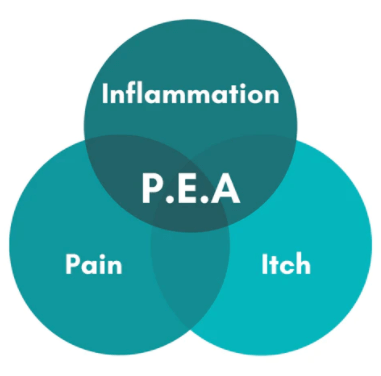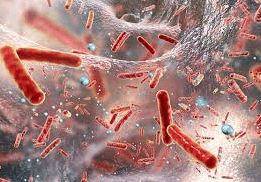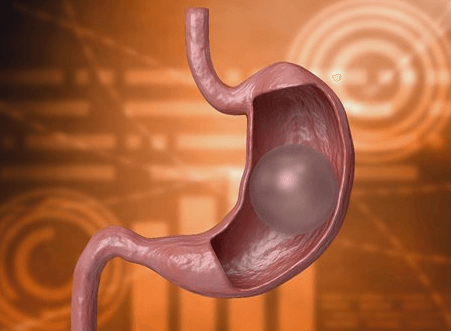The Therapeutic Potential: The Many Health Benefits Of Palmitoylethanolamide


In recent years, scientific research has shed light on the myriad health benefits of Palmitoylethanolamide (PEA). From managing pain and inflammation to promoting joint health, anti-aging effects, and supporting cognitive well-being, PEA has emerged as a promising compound in various therapeutic applications.
PEA is a natural compound found in various foods, including eggs, oysters, and peanuts. It is also produced in the body, and its presence is essential for many bodily functions.
PEA has been studied for its ability to act as an anti-inflammatory agent, helping to reduce inflammation caused by conditions such as arthritis. This article explores the diverse ways in which PEA can positively impact overall health.
Contents [show]
1. Pain And Inflammation:
Chronic pain poses a significant global health challenge, especially with the aging population. PEA’s interaction with CB1 and CB2 receptors within the endocannabinoid system is pivotal in regulating pain and inflammation.
By elevating endocannabinoid levels, PEA effectively reduces the release of inflammatory chemicals, making it a potential tool for managing conditions such as sciatica and carpal tunnel syndrome.
Clinical studies support PEA’s efficacy in treating various pain conditions, including neuropathic pain, fibromyalgia, migraines, and musculoskeletal disorders.
2. Joint Health: Alleviating Arthritis Pains
Osteoarthritis, a chronic condition affecting many as they age, sees hope in PEA. As cartilage breaks down over time, PEA stops the production of inflammatory mediators and stimulates the production of anti-inflammatory factors.
Studies indicate its effectiveness in reducing inflammation and pain associated with arthritis, making it a therapeutic option for conditions characterized by inflammation and pain.

3. Healthy Aging: PEA As An Anti-Aging Agent
Slowing down the aging process is a shared goal among scientists globally. PEA contributes to this endeavor by acting as an anti-aging agent, protecting cells from oxidative damage.
Its ability to scavenge free radicals and reduce inflammation prevents premature cell death.
Furthermore, PEA stimulates the production of collagen and other essential skin proteins, potentially diminishing the appearance of wrinkles and fine lines.
4. Anti-Allergy Properties: Calming the Immune Response
PEA’s role in reducing the release of histamines makes it a valuable asset in managing allergic reactions.
Animal studies demonstrate its effectiveness in alleviating chronic skin itching due to allergies, and a 2008 study showed improvement in eczema symptoms. PEA’s anti-allergy properties offer a promising avenue for those with allergic conditions.
5. Athletic Performance: Enhancing Exercise Recovery
In athletic performance, PEA stands out as a potential aid in exercise recovery. While the precise mechanism is not fully understood, PEA’s ability to reduce inflammation and promote healing makes it a promising option for athletes looking to improve recovery times.
With minimal side effects reported, PEA supplements offer a safe avenue for athletes seeking effective recovery solutions.
6. Brain And Cognitive Health: Nurturing Neuroprotection
Nurturing brain health is crucial in preventing degenerative diseases and maintaining cognitive sharpness. PEA, a natural fatty acid produced in the brain, exhibits anti-inflammatory and neuroprotective effects.
It stimulates healthy brain cells, reduces inflammation, and protects neurons from stressors. Emerging research suggests PEA’s potential in treating neurodegenerative and neuroinflammatory disorders, although further studies are warranted for definitive conclusions.
7. The Gut-Brain Axis: PEA’s Role in Gut Health
The gut-brain axis has gained prominence in understanding overall health. PEA emerges as a player in maintaining gut health through its anti-inflammatory effects.
PEA shows promise in conditions like inflammatory bowel disease by preventing the activation of specific gut proteins that contribute to increased intestinal permeability (leaky gut).
Studies indicate its potential in reducing intestinal inflammation, offering hope for those with gut-related ailments.
8. Migraines: A Promising Solution
Migraines, affecting a significant portion of the global population, find potential relief in PEA. Its mechanism of action involves the regulation of inflammatory mediators, resulting in reduced pain during migraine headaches.
Clinical studies report a decrease in the frequency of headaches and reduced pain medication use, making PEA a valuable option for migraine management.
9. Other Uses And Safety: A Versatile Compound
Beyond the discussed benefits, studies suggest PEA’s potential in managing depression, anxiety, fibromyalgia, ulcerative colitis, stroke recovery, and irritable bowel syndrome. Importantly, PEA exhibits a favorable safety profile, with no known drug interactions. PEA offers a versatile and safe supplement option for a range of health concerns and is suitable for children, adults, seniors, and athletes.
Conclusion
Palmitoylethanolamide (PEA) emerges as a multifaceted compound with diverse health benefits.
From managing pain and inflammation to supporting joint health, anti-aging effects, and cognitive well-being, PEA showcases promise across various therapeutic applications.
As research unveils its potential, PEA is a beacon of hope in promoting holistic health and well-being. Consultation with a healthcare professional is advised for personalized guidance on incorporating PEA into one’s wellness routine.
If you are looking for a natural supplement to improve your health and well-being, Pure Nootropics – Palmitoylethanolamide.
With its anti-inflammatory, pain-relieving, and neuroprotective properties, PEA effectively manages various health conditions, from chronic pain to allergies and more.




